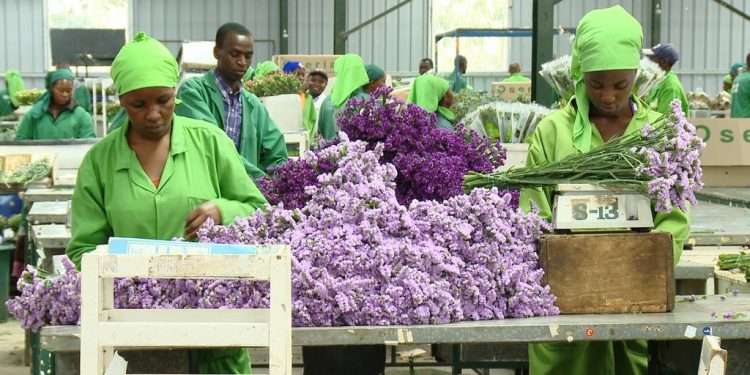In a significant move aimed at fostering easier and more cost-effective trade relations, the United Kingdom has announced the removal of export tariffs for cut flowers from Kenya and other East African nations for two years. This decision, effective from April 11, 2024, to June 30, 2026, is set to positively impact growers in the region, facilitating smoother access to the UK market and potentially benefiting UK consumers as well.
The suspension of the 8% duty on cut flowers extends beyond East Africa to encompass major flower-growing regions worldwide. However, it holds particular significance for East African producers who often transit their blooms through third countries or auction houses before reaching the UK. With unlimited quantities of flowers now eligible for export to the UK at a 0% tariff, trade barriers are substantially reduced, offering a boon to the region’s flower industry.
Kenya, renowned as the fourth largest exporter of cut flowers globally, stands to reap significant benefits from this tariff suspension. In 2022, the country accounted for 6% of global cut-flower exports, underlining its prominent position in the international flower market. Similarly, Ethiopia, as the second-largest cut flower producer in Africa, commands a substantial share of Sub-Saharan African exports.
The removal of tariffs opens up new opportunities for enhanced trade relations between East Africa and the UK, with the potential for increased exports and economic growth. In 2023 alone, trade in cut flowers between the UK and East African nations such as Ethiopia, Rwanda, Tanzania, and Uganda amounted to millions of pounds, highlighting the economic significance of this sector.
Commenting on the development, John Humphrey, the UK’s Trade Commissioner for Africa, emphasized the mutually beneficial nature of the UK’s relationship with East Africa and expressed optimism about the positive impact of the tariff suspension on trade dynamics.




